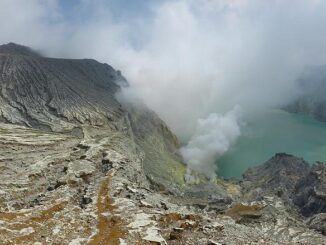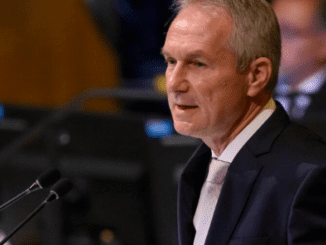
NUUK, Greenland, December 18, 2024 (ENS) – Paul Watson, the Canadian-American whale conservationist and star of Animal Planet’s TV show “Whale Wars” is a free man today after enduring 150 days in prison in the Danish territory of Greenland.
Captain Watson was arrested July 21 on a Japanese request to extradite him from Denmark to face criminal charges in Japan stemming from a 2010 anti-whaling direct action taken by the nonprofit organization Sea Shepherd Conservation Society, then owned and captained by Watson, its founder.
But today, Denmark’s Minister of Justice Peter Hummelgaard declined to send Watson to Japan and released him from prison. The dedicated marine mammal conservationist of 50 years standing is once again free and will be able to spend Christmas with his wife and two young children.
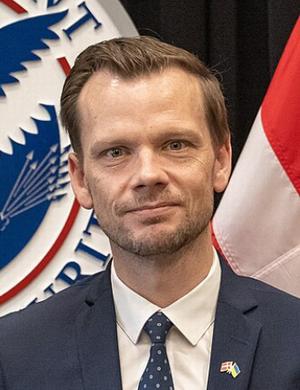
“Today the Danish Ministry of Justice has decided not to fulfil the request by the authorities of Japan for the extradition of Paul Watson. The decision is based on an overall assessment of the case,” Minister Hummelgaard said.
“In light of the total amount of time that Paul Watson would be expected to be detained until a possible decision on extradition could be implemented, and taking into account the nature and age of the offences, it has been of particular importance for the Danish Ministry of Justice to ensure that the time Paul Watson has been detained in Greenland, will be fully deducted from a potential custodial sentence that he might be sentenced to in connection with the criminal case in Japan,” the Danish justice minister said.
In their analysis of Watson’s case, Danish authorities determined that Watson’s offense was extraditable.
Arguing for extradition in a Danish court, the prosecution built its case on the idea that Watson’s presence during New Zealander Pete Bethune’s 2010 stink bomb action on a Japanese whaling vessel near Antarctica, was enough to justify the extradition request from Japan.
Bethune, a Sea Shepherd member at the time, pleaded guilty to four out of five charges stemming from the incident: trespassing, vandalism, possession of a knife and obstructing business. He denied a charge of assault, yet was found guilty of the assault of throwing stink bombs made of butyric acid – rancid butter – at the Japanese whalers.
Watson’s defense team argued that a time-marked video of the 2010 incident “clearly shows” their client’s innocence, but they were not permitted to present this evidence to the Danish court.
To read the ENS account of the 2010 incident involving Bethune, click here.
Watson’s defense has maintained throughout the past five months that the arrest was politically motivated, driven by the negative media exposure Watson and his crew caused Japan during the filming of “Whale Wars,” an action reality TV series that became a hit, airing on the Animal Planet Network in a variety of formats from 2008 to 2015.
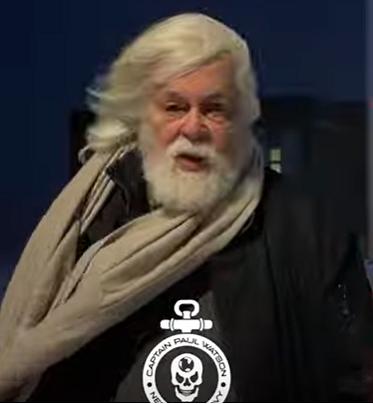
So, on December 2, Watson spent his 74th birthday behind the bars of the prison in the tiny Greenland village of Nuuk as the Danish Ministry of Justice considered Japan’s request to extradite him.
In his decision not to do so, Minister Hummelgaard pointed out that Denmark has no extradition treaty with Japan, but he did not criticize the whaling nation.
“I want to make it very clear that Denmark does not share the concerns that have been raised by certain parties in relation to the concrete case regarding the judicial system of Japan and the protection of human rights in Japan,” Minister Hummelgaard said. “Japan is a democratic country guided by the rule of law. There has been a good and close dialogue with the authorities of Japan during the processing of the case.”
Japan’s government expressed dismay on Wednesday over the release of Captain Watson after Danish authorities rejected its extradition request.
And the president of Japanese whaling operator Kyodo Senpaku, Hideki Tokoro, said Wednesday that the government should continue trying to hold Watson accountable.
“They slammed into our ships. … What they do is simply a business to collect donations,” Tokoro fumed.
But Watson is certain that the extradition attempt was a political move meant to stop his anti-whaling activities. “My arrest has focused international attention on Japan’s continuing illegal whaling operations and their intent to go back to the Southern Ocean. … So, in fact, these five months have been an extension of the campaign,” Watson said after his release Tuesday morning.
Japan’s Whale Meat Market
Watson’s detainment has turned the public spotlight to the ongoing issue of illegal Japanese whaling. Despite international treaties and regulations, Japan has resumed high-seas whaling with a brand new ship, the Kangei Maru, a $47 million factory processing vessel launched in May to target threatened fin whales.

The global whale meat market, which amounted to US$389 million in 2023, is expected to reach US$549.12 million by 2031, growing at a CAGR of 4.4% during the forecast period of 2024 to 2031, according to analyses by India-based Data Bridge Market Research.
In 2024, the minke whale segment dominates the market due to demand from whale-eating countries such as Japan and Norway.
Major players operating in the global whale meat market are Japanese – the Maruha Nichiro Corporation and Kyodo Senpaku Co., Ltd. Japan’s government voiced “dismay” on Wednesday over the release of the anti-whaling activist after Danish authorities refused Tokyo’s extradition request, the Japan Times reported.
Japan has agreed to abide by the International Whaling Commission’s global moratorium on whaling, in effect since 1986, but Japan’s Antarctic research whaling program, JARPA, is viewed by conservationists as a front for the business of supplying whale meat commercially. JARPA was deemed illegal by the International Court of Justice in 2014.
Operating in breach of the international court’s ruling for several years, Japan ceased Antarctic high-seas whaling in 2016 and now hunts whales only within the waters of its exclusive economic zone, within 200 nautical miles from shore.
Japan resumed commercial whaling within this zone after withdrawing from the International Whaling Commission in 2019. And CPWF believes that Japan plans to resume high-seas whaling in the Southern Ocean and North Pacific within the year.
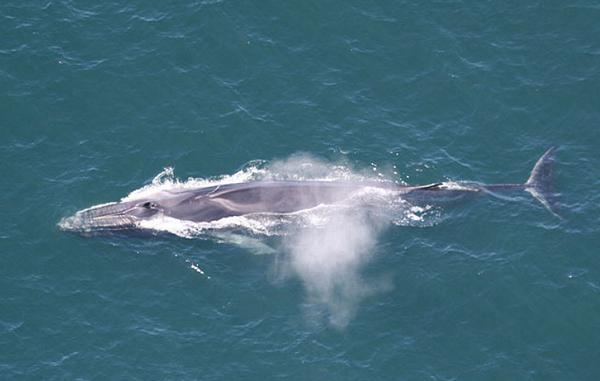
The Japanese whalers target four whale species. Japan’s Fisheries Agency this year added fin whales to its list of three other whale species that can be legally hunted as the country expands commercial whaling along its coast.
On December 12, the Associated Press reported that meat from fin whales caught for the first time in nearly 50 years off Japan’s northern coast fetched up to more than US$1,300 per kilogram (2.2 lbs) at auction.
Japanese officials said 30 fin whales were caught this season. Japan set a combined catch quota of 379 for the three other whale species on its list approved for slaughter: minke, Bryde’s and sei whales.
In Pursuit of Whalers, Watson Sailed Into Danger
Watson founded the Captain Paul Watson Foundation in 2023 after a schism that erupted within the Sea Shepherd Conservation Society over the utilization of non-violent direct action tactics left him on the outside of the organization he founded in 1977.
Captain Watson was in the process of rebuilding his anti-whaling fleet to intercept the Japanese whalers when he ran into trouble.
In July, Watson sailed from the Port of Dublin, Ireland aboard his 72-meter flagship the M/Y John Paul DeJoria, a former Scottish Fisheries Protection vessel. He intended to transit the Northwest Passage and intercept the newly-built Japanese whaling ship Kangei Maru in the North Pacific.
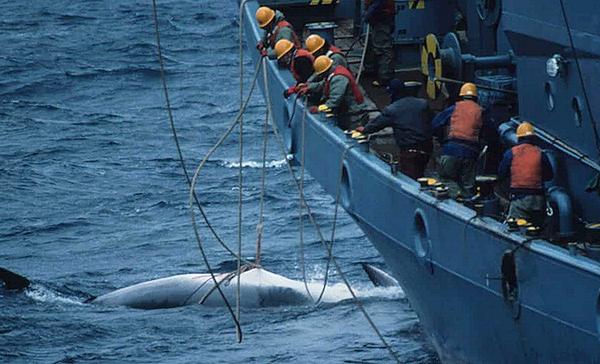
Despite international treaties and regulations, Japan has resumed high-seas whaling with the construction of the Kangei Maru, a $47 million factory whale processing vessel launched in May to target threatened fin whales and three other imperiled species.
“The plan is to go after the world’s largest and most dangerous whaling ship, the Kangei Maru, and block its operations. We have to get to the Pacific and the shortest route is through the Northwest Passage,” said Watson from the wheelhouse of CPWF’s vessel in Dublin’s Liffey River in July.
But they never reached the icy Northwest Passage, open only in summer.
Watson stopped in Greenland with 25 volunteer crew members from 13 countries to refuel en route to the Northwest Passage. The Danish police were waiting.
“We were here and arrested Paul due to an international arrest order from Japan,” said the leader of the Danish federal police boarding party at the site of the arrest.
A police tip-off from the Faroe Islands, a nearby self-governing archipelago that is part of the Kingdom of Denmark, alerted the Danish Ministry of Justice and Greenlandic authorities to the arrival of Captain Watson’s ship and pushed for his detention, the Danish Parliament confirmed in September.
The Faroe Islands are infamous for their pilot whale and dolphin hunts known as the ‘Grindadráp’ in Faroese. In these annual grinds, hundreds of pilot whales, Atlantic white-sided dolphins, and bottlenose dolphins are chased and killed until the Faroe Islands’ ocean waters run red.
The killing of small cetaceans, and even their harassment using boats, is illegal and banned in Denmark, in the European Union, and many countries around the world. The Faroese Grindadráp draws protests and criticism from politicians, conservationists, the media and the public.
“Since the early 1980s, Paul Watson has launched many campaigns against the barbaric dolphin hunts and is a thorn in the side of the Faroe Islands,” Rob Read, chief operations officer of the CPWF-UK said.
“The Captain Paul Watson Foundation UK is in our ninth consecutive year of ‘Operation Bloody Fjords’ exposing over 70 ‘grinds’ to the world. Last year Paul sailed the CPWF flagship John Paul Dejoria into Faroese waters to again oppose the hunts, so this revelation of Faroese involvement in demanding Paul’s arrest comes as no surprise,” Read said.
Watson Converts Imprisonment to Part of His Campaign
“Sometimes, going to jail is necessary to make your point. Every situation offers an opportunity, and this was another chance to shine a global spotlight on Japan’s illegal whaling in the Southern Ocean Sanctuary. If I had been sent to Japan, I might never have come home. I’m relieved that didn’t happen,” Watson said upon leaving Nuuk Detention Center Tuesday morning to face icy temperatures.
He was accompanied by his lawyer, Danish advocat Julie Stade, and Omar Todd, a tech entrepreneur who serves as chief executive officer of the Captain Paul Watson Foundation, CPWF.
“Watson’s arrest has brought to light abuse of the Interpol system, exposing how individuals can be detained based on politically motivated charges, without a thorough review of the evidence,” the CPWF said in a statement upon his release. “This case underscores the need for reform within international law enforcement mechanisms to prevent such injustices.”
During his detainment, Captain Watson received an outpouring of support from people around the world.
His supporters include celebrities such as primatologist Dr. Jane Goodall, who said that she and members of the Jane Goodall Institute’s Cetacean and Ethics Committees “unequivocally condemn the practice of whaling and are strongly opposed to arresting individuals demonstrating their compassion and concern for the wellbeing, conservation and protection of cetaceans and individuals of those species.”
“Whales and other cetaceans are long lived sentient beings. They have complex social bonds and are extremely intelligent. Whaling, whether for commercial or alleged scientific purposes, is cruel and unethical. Each and every whale matters as an individual and should be respected accordingly,” Dr. Goodall said.
“Captain Watson is simply taking action to try to prevent the inhumane practice of killing whales, which most countries have banned decades ago,” Goodall said. “In so doing he is expressing the anger of thousands of people in many countries who absolutely support his moral courage in not only speaking out on behalf of the whales, but taking action.”
Other supporters include American oceanographer Dr. Sylvia Earle; President of France Emmanuel Macron, who urged Denmark not to extradite Captain Watson; President Lula da Silva of Brazil, American actors Martin Sheen and Pierce Brosnan, and the British co-founder of the Virgin Group, Richard Branson.
In addition, the #FreePaulWatson movement attracted thousands of supporters and protesters worldwide to sign a petition and send letters to Watson in jail and to the Danish Ministry of Justice demanding his release.
Locky MacLean, ship operations director at the Captain Paul Watson Foundation, said, “Paul Watson is a free man after serving 150 days behind bars without being tried for any crime, Denmark made the right choice today to dismiss this politically motivated and vengeful case brought on by Japan, this is a victory for human rights and for the whales!”
Featured image: Captain Paul Watson, center, leaves the Nuuk Detention Center, accompanied by a member of his defense team, Danish advocat Julie Stade, left, and Omar Todd, right, CEO of the Captain Paul Watson Foundation, CPWF. December 17, 2024 (Photo courtesy CPWF)
© 2024, Environment News Service. All rights reserved. Content may be quoted only with proper attribution and a direct link to the original article. Full reproduction is prohibited.


